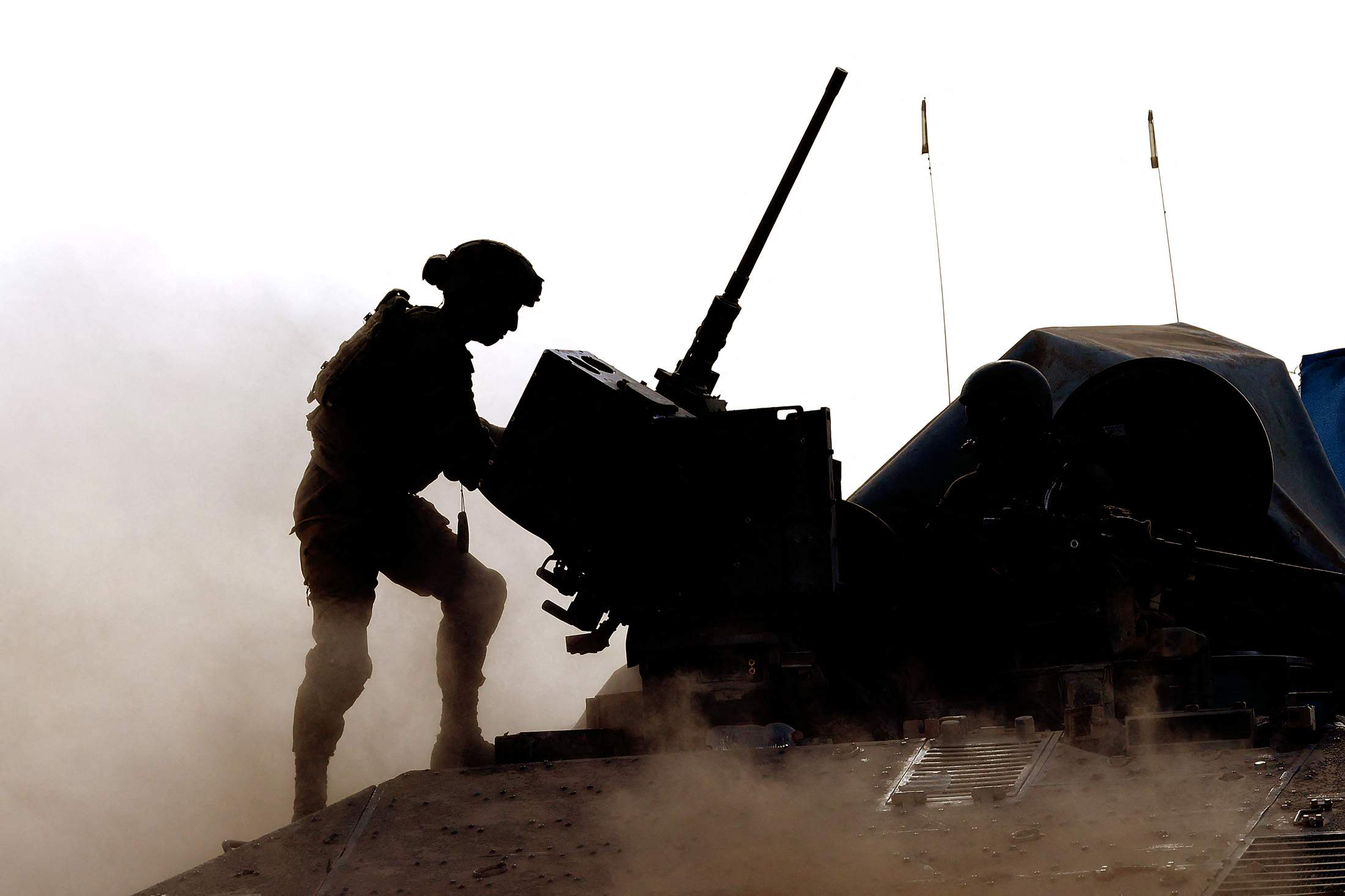The Agenda: Comment / Global
Farewell to arms
After decades of relative peace, the West’s arms sector is now having to play catch-up, writes Stuart Crawford.
DEFENCE –––– EUROPE
Farewell to arms
After decades of relative peace, the West’s arms sector is now having to play catch-up, writes Stuart Crawford.
The world’s largest aerospace and defence companies look set to earn record revenues as countries seek to rearm in the light of the Ukraine and Gaza wars. This reported bonanza is hardly surprising, given the vast expenditure of munitions and materiel in both conflicts. It’s a marked departure from the decades of relative peace following the demise of the Soviet Union. Armed forces around the globe shrunk, with some notable exceptions, as governments spent on other priorities. Nowhere was this trend more acute than in Western Europe – but that peace is now over.

The alarm bell first went off in 2014 when Russia illegally occupied Crimea and the snooze button was permanently switched off with the subsequent full-scale invasion of Ukraine in February 2022. Governments belatedly woke from their slumber and looked to their armed forces once more. Many were embarrassed by the decline that had taken place when they weren’t looking. Countries had grown complacent and were now playing catch-up. There was also a stinging realisation that expanding armed forces and equipping them adequately would not happen overnight. Many domestic defence-industry manufacturers of the past were simply no longer in business.
So does all of this signify a boom time for the arms industry? Yes and no. Certainly, a huge amount of materiel and ammunition has been sent to – and expended by – Ukraine. Much of it has come from the national stocks of its allies, which now need to be replenished as quickly as possible. Likewise, Israel has been kept supplied in its struggle against Iran’s proxies, particularly Hamas and Hezbollah, by weapons exports primarily from the US, Germany and Italy. However, while it might seem as though the current conflicts have made it a seller’s market and that manufacturers have been given a licence to print money, other factors come into play. And politics, both global and domestic, is never far away.
Demand for weapons and equipment around the world has clearly increased. But in the words of the Rolling Stones, “You can’t always get what you want.” The US and other Western nations have supplied some support to Ukraine reluctantly and placed restrictions on its use. Governments are also facing increasingly vociferous demands from pro-Palestinian activists to halt arms sales to Israel while the war in Gaza continues. The UK has now partially bowed to popular pressure; the US and others have not. Manufacturers are being curtailed from making as much as they might like to do as a result.
There are domestic constraints too. The UK’s Ministry of Defence has committed £7.6bn (€9bn) in military aid to Ukraine over the past three years. Stockpiles of ammunition and other materiel have been run down because of both government parsimony over past decades and donations to other nations, to the extent that the recent chief of the general staff, Sir Patrick Sanders, said, “It would make your hair stand on end.” At the same time, the incoming Labour administration has been startled by the poor state of the nation’s finances, meaning little guarantee can be given on future arms orders.
The UK government has commissioned yet another strategic defence review, which cynics say is a euphemism for future defence cuts. The country’s armed forces are in dire straits, with a projected £80bn (€95bn) “hole” in its budget over the next decade and clearly some equipment programmes might have to be cancelled to balance the books. There is a very real possibility, therefore, that the arms boom will be short-lived, unless governments, from the UK to Germany, commit to serious investment in new production facilities, plus storage space for armaments. This could take time, if it happens at all.
The challenge for the defence industry is a long-term conundrum. Is it worth investing further? And most importantly, who is going to pay? —
Born in Glasgow, Crawford is a journalist and former soldier who served the UK over a 20-year career.


